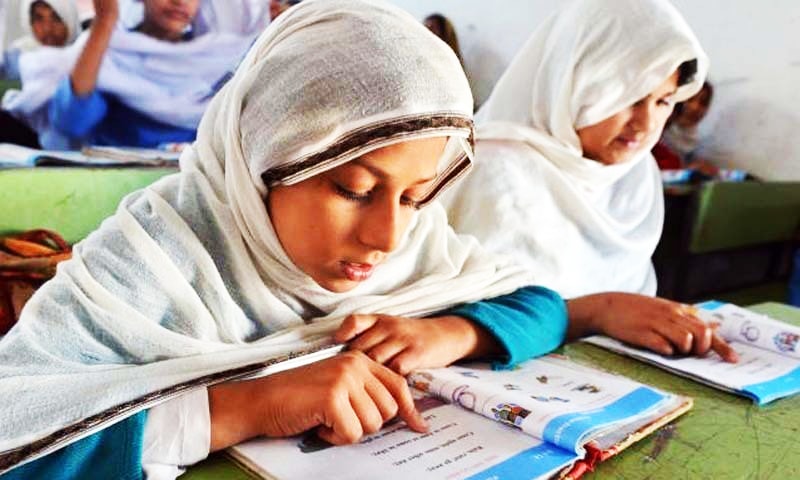Bias in textbooks

TO create a more tolerant and inclusive society, it is essential that textbooks contain lessons that foster a spirit of unity rather than fuel divisions.
However, as experts pointed out at a seminar on the curriculum held in Islamabad recently, textbooks of both public and private educational institutions in Pakistan contain material that promotes prejudice.
As one participant of the programme put it, our books did not reflect “love, respect or plurality”, and highlighted divisions instead.
There is, of course, much merit in what the academics highlighted, as Pakistan was a relatively more tolerant place several decades ago than it is today. While the rise of and the free rein given to extremist religious groups in the country has had a role to play in making society less tolerant, the state is largely to blame for promoting a narrow, exclusivist ideology through textbooks.
For instance, it is often pointed out that Pakistan Studies lessons can be problematic in their narrative of the Pakistan Movement; in many cases Hindus are demonised as a community in our textbooks while describing the background of Partition.
The Khyber Pakhtunkhwa administration — under the previous Awami National Party government — tried, for example, to interpret the Pakistan Movement in a more progressive and less exclusivist manner. Yet these efforts were reversed when the PTI came to power in 2013, reportedly at the behest of the Jamaat-i-Islami, the party’s coalition partner in the province.
Another issue of concern is that of making non-Muslim students study Islamic material, especially in primary classes.
While Pakistan is a Muslim-majority state, it also has people of other faiths living within its borders, which is why it is unfair to make non-Muslim students memorise Islamic prayers or learn the majority population’s religious rituals.
Perhaps the key to reforming the system and inculcating more tolerant values in our textbooks lies with the provinces, as they have the power to interpret the curriculum.
Textbooks must be purged of all material that promotes hate against any religion, sect or nation and the goal must be to impart lessons that will aid the intellectual growth of students, not make them merely regurgitate ideological slogans.
Moreover, textbook-writing should be the domain purely of subject specialists and must be free from political meddling.
There is much that is wrong with our education system; one essential area that can help set it right is to promote a progressive curriculum that favours peace over bigotry.
Published in Dawn, October 5th, 2015
On a mobile phone? Get the Dawn Mobile App: Apple Store | Google Play










































